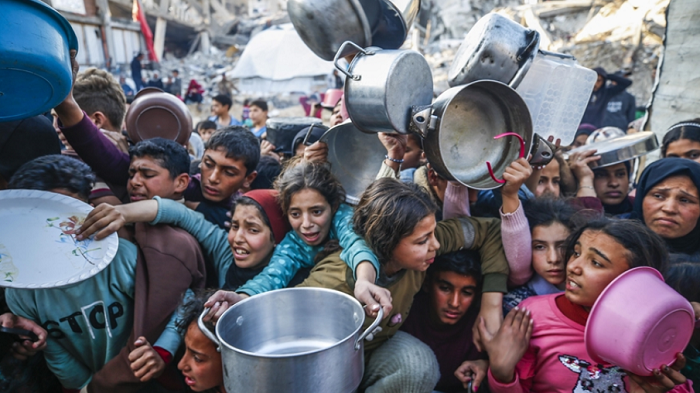-
16:20
-
16:40
-
13:00
-
17:00
-
16:00
-
10:20
-
10:00
-
09:30
-
16:20
Follow us on Facebook
UN Rejects Gaza Aid Plan as Israeli Political Crisis Escalates
The crisis in Gaza has taken another dramatic turn as the United Nations officially rejected a proposal from the Israeli government to oversee humanitarian aid delivery into the besieged enclave. The UN emphasized it will not participate in any system that does not strictly adhere to core humanitarian principles, including neutrality, impartiality, and independence in aid distribution.
This decision arrives at a critical juncture, not only for the people of Gaza but also for the Israeli government, which is facing increasing domestic and international scrutiny. The humanitarian situation in Gaza continues to deteriorate rapidly. According to the Palestinian Ministry of Health in Gaza, since the escalation began on October 7, 2023, Israeli military operations have resulted in the deaths of at least 50,810 Palestinians and left more than 115,688 injured. A large proportion of the victims are reported to be women and children.
The UN’s rejection is a significant blow to Israeli diplomatic efforts to portray control over aid delivery as a mechanism to ensure security and order. Humanitarian organizations argue that true aid must be facilitated through an independent process, free from military or political interference. The international body reiterated its commitment to assisting civilians but stressed it would not compromise on fundamental ethical standards in its operations.

Meanwhile, political instability is deepening within Israel. A contentious move to dismiss Ronen Bar, the current chief of the Shin Bet (Israel’s internal security service), has ignited a new wave of tensions within the Israeli leadership. Bar's dismissal attempt has led to public controversy and institutional pushback. The Israeli Supreme Court has intervened, urging all involved parties to seek a compromise. The court also issued an order for Bar to remain in his position for the time being and barred any immediate appointment of a replacement.
This legal intervention underscores growing institutional fractures and the challenges facing Prime Minister Benjamin Netanyahu’s government. Critics argue that the ongoing war in Gaza and the mishandling of domestic affairs are fueling a broader political and governance crisis.
The rejection by the UN and the intensifying internal political discord come at a time when calls for a ceasefire and renewed diplomatic engagement are growing louder across the international community. As pressure mounts, the path forward for both humanitarian access in Gaza and political stability in Israel remains highly uncertain.



